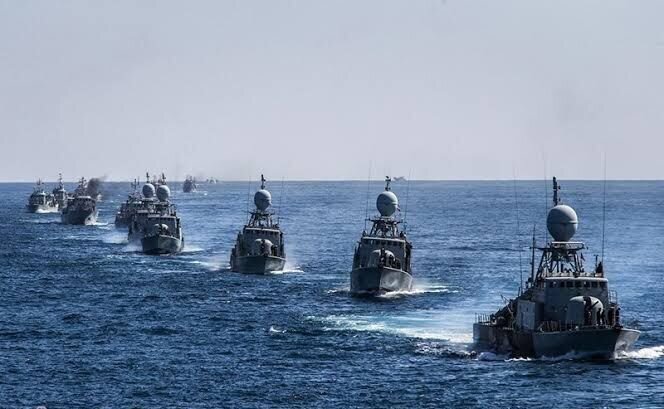IRGC navy disputes U.S. claims on ‘harassment’ of merchant ship

TEHRAN- Iran’s Islamic Revolution Guards Corps (IRGC) Navy on Monday refuted Western reports that a commercial ship was “harassed” by its boats in the Strait of Hormuz as the elite force responded to a distress signal and went to its rescue.
The statement was made by Brigadier General Abbas Gholamshahi, commander of the IRGC Navy’s First Zone, after the U.S. navy claimed that its sailors and the Royal Navy of the United Kingdom came to the aid of a ship in the Strait of Hormuz after the so-called “harassment” of the Iranian force’s fast-attack boats.
According to General Gholamshahi, the hostile media outlets, in an unprofessional manner and in violation of media ethics, strived to spread false information, sow unrest and legitimize the “illegitimate and unjustifiable presence of the extra-regional countries in the Persian Gulf.”
The IRGC Navy official said that at 4:15 p.m. local time on Saturday, the Marshall Islands-flagged trade ship sent out a distress call as it approached the Strait of Hormuz.
“The command-and-control center of Iran at the Strait of Hormuz responded to the call immediately, and resolved the ship’s concerns about the presence of non-military light boats near it after considering the request and evaluating the situation in that region,” he stressed.
Gholamshahi stated that the captain of the trade vessel had reported seeing “three non-military light boats” at a distance of a few miles and expressed concern about possible harassment.
There were no extra-regional ships in the area where the commerce ship had sought help, the navy official asserted, adding that media reports regarding the presence of foreign naval troops were “totally false.”
The commander said that the IRGC forces’ regular responsibilities include maintaining security, performing rescue missions, and promptly responding to distress calls in the Persian Gulf and Strait of Hormuz.
He noted that it is the responsibility of the regional countries to ensure the security of the Persian Gulf, and that the Persian Gulf states can provide long-term security in the strategic maritime region without the interference of foreign countries.
The Persian Gulf — which spans some 251,000 square kilometers — is bounded by the Arvand River in the north, which forms the frontier between Iran and Iraq, and the Strait of Hormuz in the south, which links the Persian Gulf to the Sea of Oman and the Indian Ocean.
The inland sea is a trading route that connects West Asia to open seas.
Iran has made it plain that it views U.S. military ships loitering in the Persian Gulf waters as a danger to its national security as well as a cause of unrest and instability in the region.
Tehran has frequently pledged to respond forcefully to any hostile action taken by Washington that jeopardizes the safety of the vital waterway.
Leave a Comment